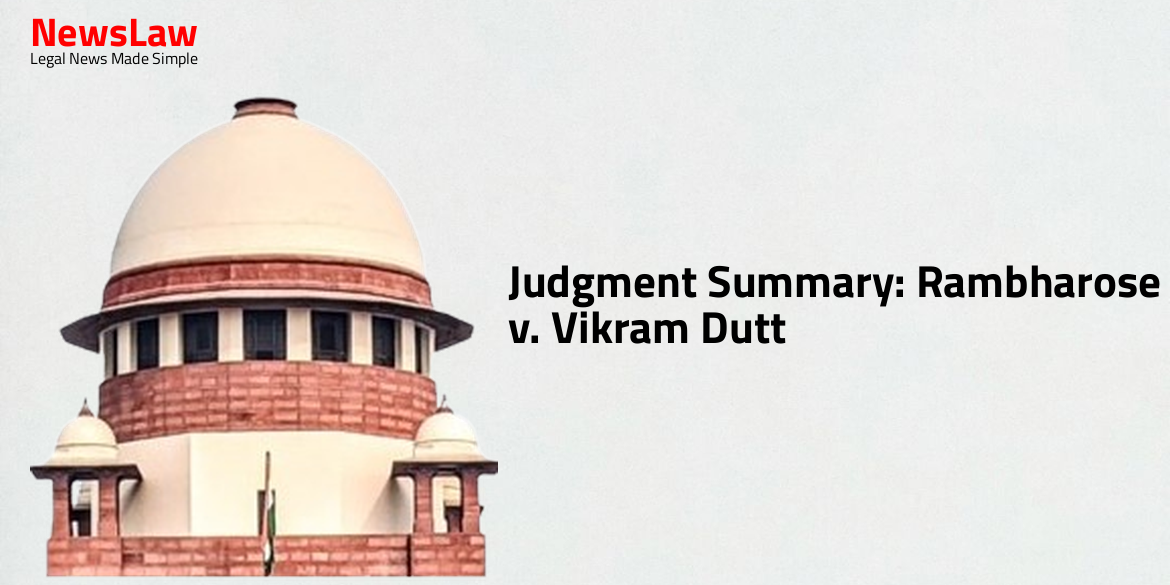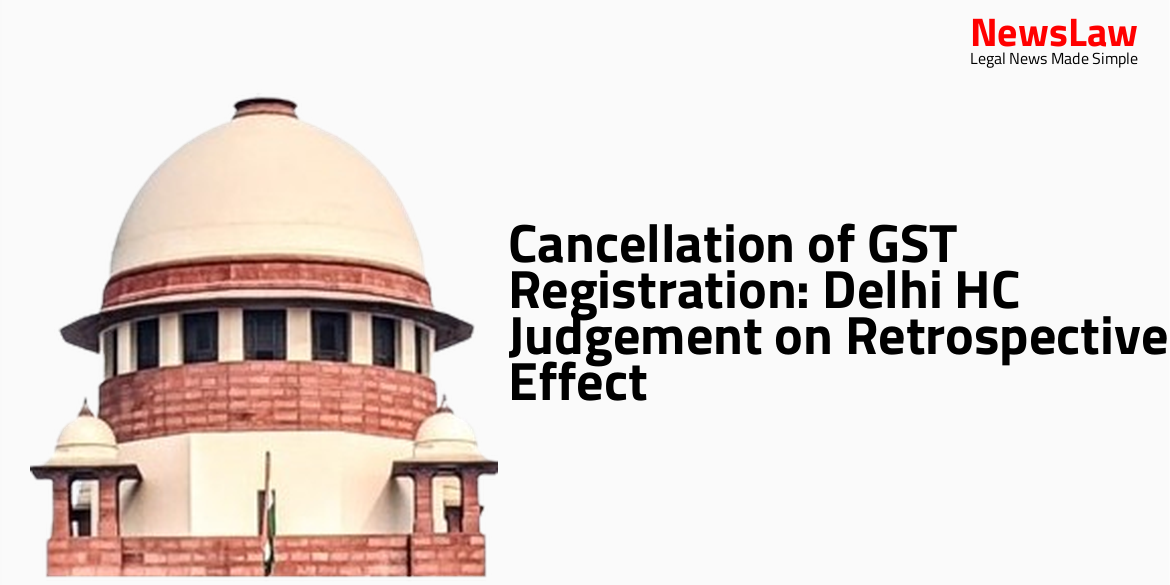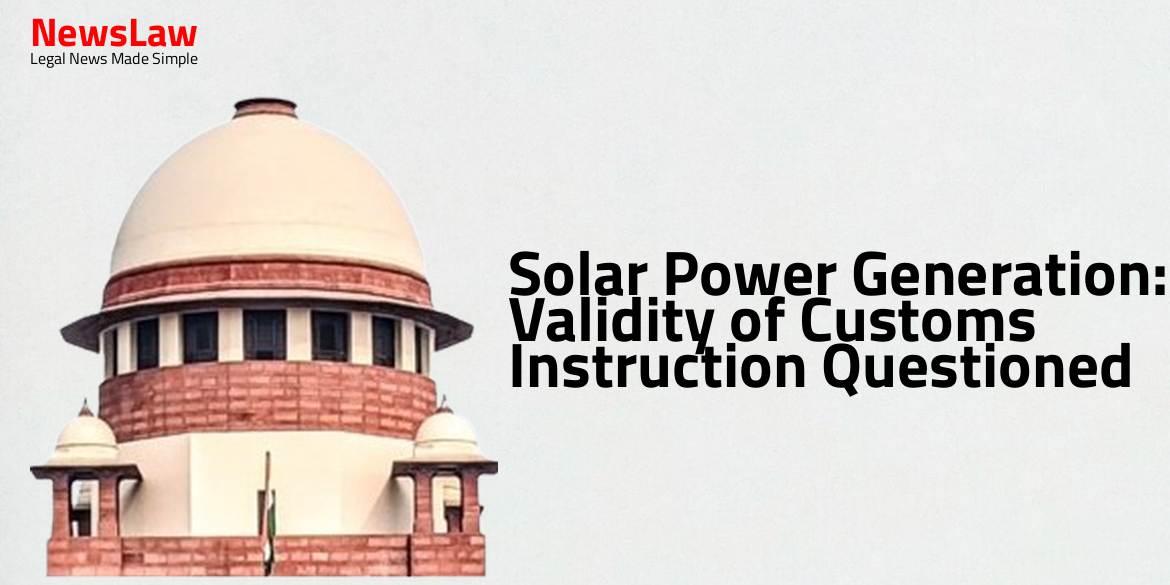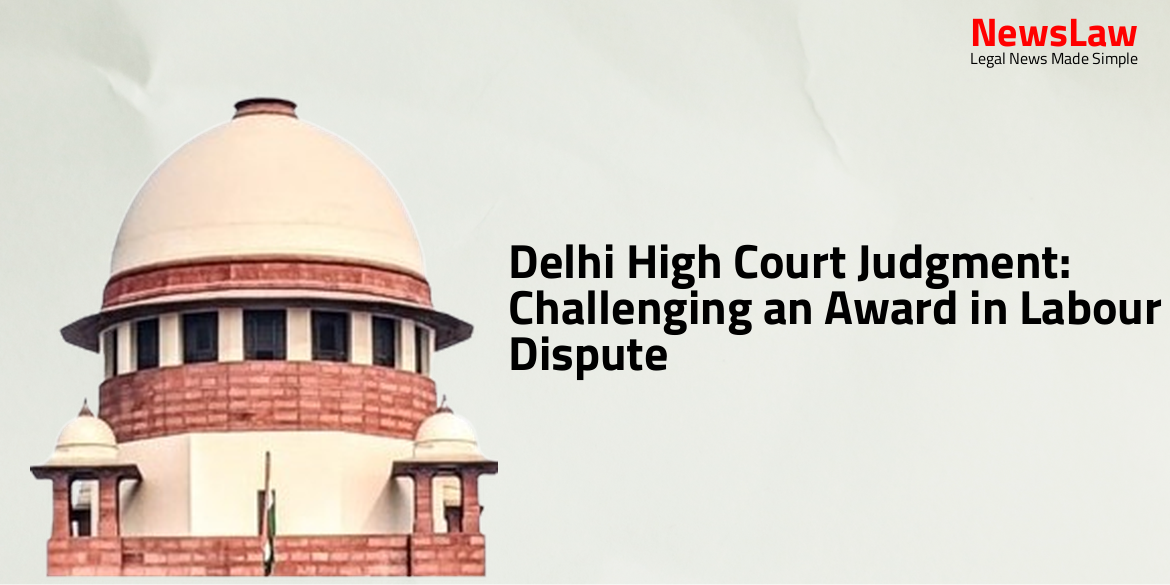Delve into the recent judgment by the Delhi High Court in the case of Rambharose v. Vikram Dutt. The petitioner, Rambharose, sought legal recourse against the respondent, Vikram Dutt, for dishonored cheques and unfulfilled promises. The court’s analysis of Section 143-A of the NI Act provides insights into the discretionary powers of the Trial Court. Stay informed on the implications of non-payment of interim compensation and the factors considered before granting such relief.
Facts
- The Trial Court dismissed the application filed by Sh. Rambharose under Section 143A of the Negotiable Instruments Act, 1881.
- Sh. Rambharose sent a legal demand notice to Sh.Vikram Dutt seeking repayment of the amount in question.
Arguments
- The respondent failed to provide the lease/license and employment as promised to the petitioner and his family.
- The respondent issued two cheques of Rs. 9.95 Lacs each to the petitioner, which were dishonored due to insufficient funds.
- The respondent did not deny his signatures on the cheques in question.
- The petitioner deposited the cheques which were dishonored on 16.09.2019 with the remarks ‘Insufficient Funds’.
- The presumption under Section 139 of the NI Act indicates that the cheques were issued in discharge of a debt and liability, making a strong prima facie case against the respondent.
- The respondent took a total of Rs. 20 lacs from the petitioner based on false assurances and inducement.
- The respondent’s promise of employment for the petitioner’s family members was not fulfilled.
Analysis
- The interim compensation under sub section (1) shall not exceed twenty per cent. of the amount of the cheque.
- The interim compensation shall be paid within sixty days from the date of the further period not exceeding thirty days as may be directed by the Court on sufficient cause being shown by the drawer of the cheque.
- If the drawer of the cheque is acquitted, the Court shall direct the complainant to repay to the drawer the amount of interim compensation, with interest at the bank rate as published by the Reserve Bank of India.
- The interim compensation payable under this section may be recovered as if it were a fine under section 421 of the Code of Criminal Procedure, 1973 (2 of 1974).
- The amount of fine imposed under section 138 or the amount of compensation awarded under section 357 of the Code of Criminal Procedure, 1973 (2 of 1974), shall be reduced by the amount paid or recovered as interim compensation under this section.
- Use of the word ‘may’ in certain legislations can be construed as ‘shall’ and ‘shall’ can be construed as ‘may’.
- The recent judgment in Rakesh Ranjan Shrivastava v. State of Jharkhand & Anr. clarified this aspect.
- The presumption under Section 139 of the NI Act is not a ground to direct the payment of interim compensation.
- The presumption is rebuttable and applies at the Trial stage.
- The word ‘may’ in Section 143-A cannot be interpreted as ‘shall’ to avoid drastic consequences before the accused is found guilty.
- The discretion to convert a summons case into a warrant case lies with the learned Magistrate.
- The issuance of bailable warrants and the cancelation on the same day was noted in the case.
- Non-payment of interim compensation fixed under Section 143-A has severe consequences.
- The provision allows for recovery of interim compensation from the accused treating it as a fine.
- The process for recovery of the amount from the complainant through Section 421 CrPC may be lengthy.
- The lack of evidence regarding the alleged payment to the accused was highlighted in the analysis.
- The court’s discretion in directing payment of interim compensation under Section 143-A was discussed.
- The discretionary nature of the power under Section 143-A was emphasized, considering various factors before granting interim compensation.
- The need for a strong prima facie case to direct the respondent to deposit interim compensation was mentioned.
- The implications of selling the accused’s property for recovery of interim compensation, even if acquitted, were highlighted.
- The provision of Section 143-A may be held as violative of Article 14 of the Constitution if not applied discretionarily and fairly.
- Factors to be considered for granting interim compensation were outlined, with the importance of evaluating all relevant factors.
- The Supreme Court’s clarification that the power under Section 143-A is discretionary was reiterated.
- The possibility of getting back the money and interest if acquitted was mentioned in the analysis.
- The petitioner’s evidence is almost complete and the trial is likely to conclude soon.
- Both parties have been appearing on almost all dates of hearing before the Trial Court.
- The respondent’s default in appearance during the Covid-19 pandemic was due to medical ailments related to the pandemic and otherwise.
- Explanation for the delay in appearance before the Trial Court is considered valid.
- The power under Section 143A of the NI Act can only be interfered with if found to be perverse or so unreasonable that discretion could not have been exercised in that manner.
- The Trial Court exercised its powers under Section 143A of the NI Act in this case, influencing the trial proceedings.
Decision
- The petition has been dismissed.
- No costs are to be awarded.
- The challenge of 24 is found to be without merit.
Case Title: RAM BHAROSE Vs. VIKRAM DUTT (2024:DHC:4607)
Case Number: CRL.M.C.-6064/2022



